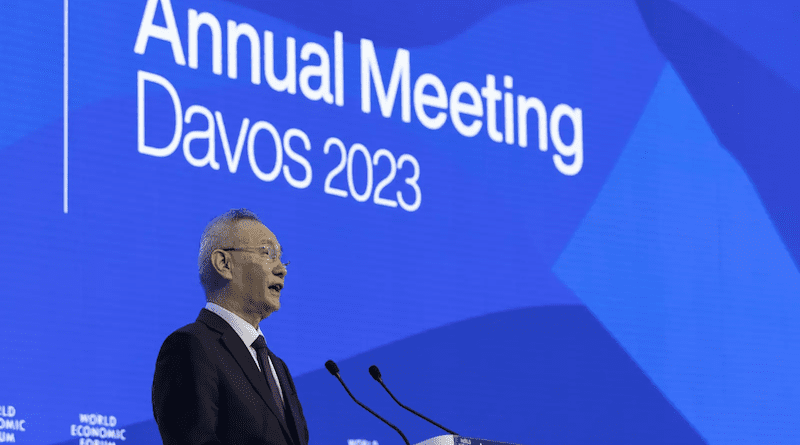Chinese Vice-Premier Liu He Commits To Deepening Market Liberalization And Opening
In a special address at the 53rd World Economic Forum, Vice-Premier Liu of China offered assurances to participants on continuing liberalization and a loosening of restrictions on China’s real estate sector.
As China battles a COVID wave, Liu noted that the country had dropped quarantine requirements and other travel restrictions that had been in place since early 2020. “China’s door to the outside will only open wider,” he said.
Liu repeated the formulation first put forward by President Xi Jinping in 2017, reiterating that in China markets will play a “decisive role in resource allocation.” He said: “Some people say China will go for the planned economy. That’s by no means possible.”
Liu noted that the real estate sector, which saw titans face collapse in 2021 and 2022, unable to meet debt obligations, remains a pillar of the Chinese economy. “It accounts for nearly 40% of bank lending, 50% of overall local government fiscal resources, and 60% of urban household assets,” he said. “If not handled properly, risks in the housing sector are likely to trigger systemic risks.”
“We have relaxed restrictions that were once introduced to address the overheating in the property market,” he added, referring to the “Three Red Lines” introduced in August 2020.
Seeking to allay fears that China’s Common Prosperity agenda amounted to radical wealth redistribution, Liu described it instead as a “long-term task that requires an incremental and gradual approach” and not something to be achieved overnight. He said that Common Prosperity was aimed at preventing polarization, adding: “Common prosperity is by no means a synonym for egalitarianism or welfarism.”
In a distinct echo of President Xi’s Davos speech in 2017, Liu underscored China’s commitment to globalization. “We oppose unilateralism and protectionism and look forward to strengthening international cooperation with all countries for world economic stability and development, and the promotion of economic re-globalization.”
He affirmed China’s twin goals of achieving peak carbon emissions before 2030 and achieving carbon neutrality by 2060. “Carbon neutrality is China’s international obligation,” he said. “This is also what China needs in driving internal growth. It is not something imposed on us, but something that we want to do.”

